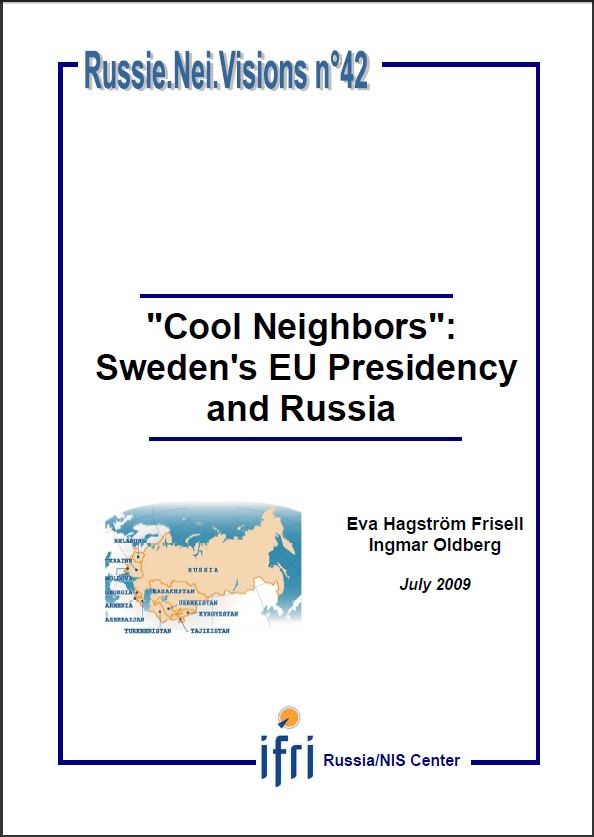"Cool Neighbors": Sweden's EU Presidency and Russia

Sweden and Russia are close neighors with a complicated relationship. They have normal political relations with growing economic and cultural exchanges, especially on a regional basis; however, they both foster an age-old distrust, and have diverging attitudes toward democracy and human rights. Furthermore, Sweden is not interested in Russian gas exports or a gas pipeline under the Baltic Sea. During its EU Presidency in 2009, Sweden is likely to prioritize issues such as climate change, economic growth, and the Baltic Sea region. It will continue the efforts of previous Presidencies for a new partnership agreement with Russia, however. The adoption of an EU strategy for the Baltic Sea region will be a key task, and it will be linked to the Northern Dimension policy, which focuses on regional cooperation with Russia. Sweden will also push the implementation of the Eastern Partnerhip with Russia's western and southern neighbors. This may, however, strain relations with Russia and lead to increased pressure on the prospective partners. In general, Sweden is interested in cooperation with Russia, but will not jettison its support for democratic values and human rights to attain it.
Download the full analysis
This page contains only a summary of our work. If you would like to have access to all the information from our research on the subject, you can download the full version in PDF format.
"Cool Neighbors": Sweden's EU Presidency and Russia
Related centers and programs
Discover our other research centers and programsFind out more
Discover all our analysesRussia, the Palestinians and Gaza: Adjustments after October 7th
The Soviet Union (USSR), and subsequently the Russian Federation as its internationally recognized legal successor, has consistently sought to play a visible role in efforts to resolve the Israeli-Palestinian conflict.
Deathonomics: The Social, Political, and Economic Costs of War in Russia
The report attempts to outline and examine a truly new phenomenon in Russian society, dubbed “deathonomics”—the making of a mercenary army against the backdrop of the Kremlin’s war in Ukraine, eventually replacing both the Soviet (conscript) and early new Russian (contract) armies. It notes that, by the end of 2023, this trend had turned the military service into one of the highest-paying professions in the country, something not seen in Russia on such a scale since the late 17th century.
Russia's Asia Strategy: Bolstering the Eagle's Eastern Wing
Among Russia’s strategic priorities, Asia traditionally played a secondary role compared to the West. In the mid-1990s, then Foreign Minister Yevgeny Primakov initiated a rapprochement with China and India. Then, in 2014, deteriorating relations between Russia and the West prompted Moscow to begin its “great pivot to the East”.
Kazakhstan After the Double Shock of 2022: Political, Economic and Military Consequences
The year 2022 represented a dual shock for Kazakhstan. In January, the country faced its most severe political crisis since independence, followed in February by Russia’s full-scale invasion of Ukraine, which cast uncertainty over the borders of post-Soviet states. These consecutive crises profoundly shaped Kazakhstan’s domestic and foreign policy.











